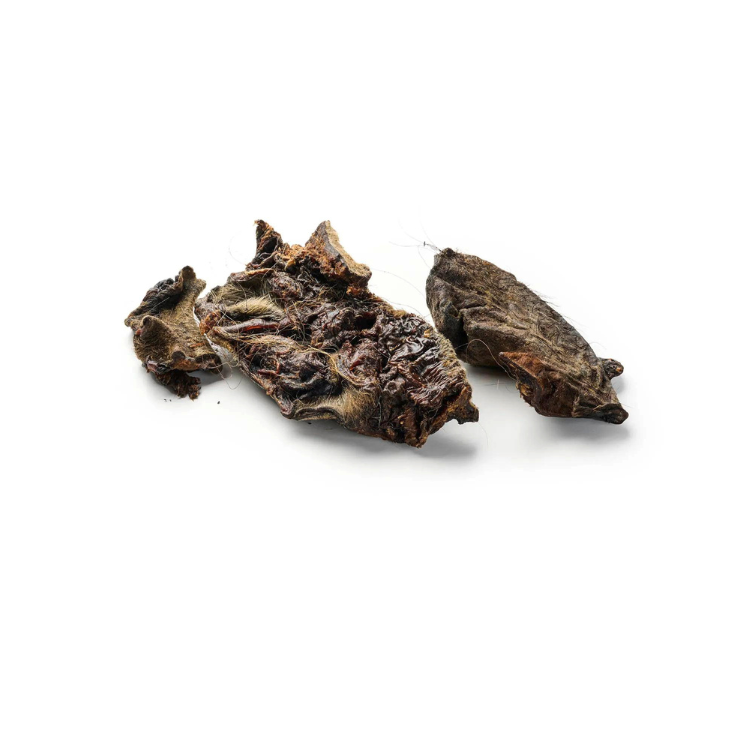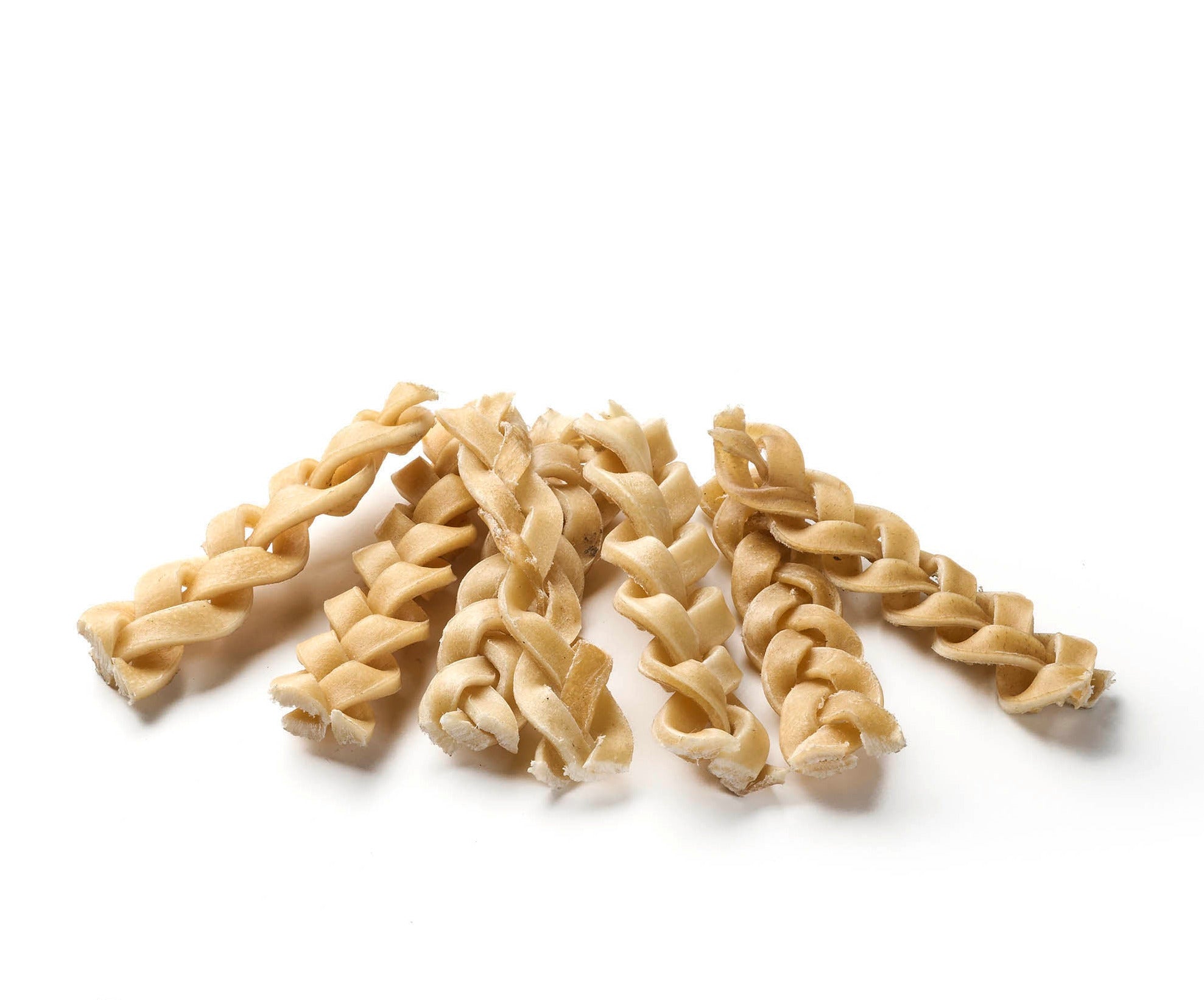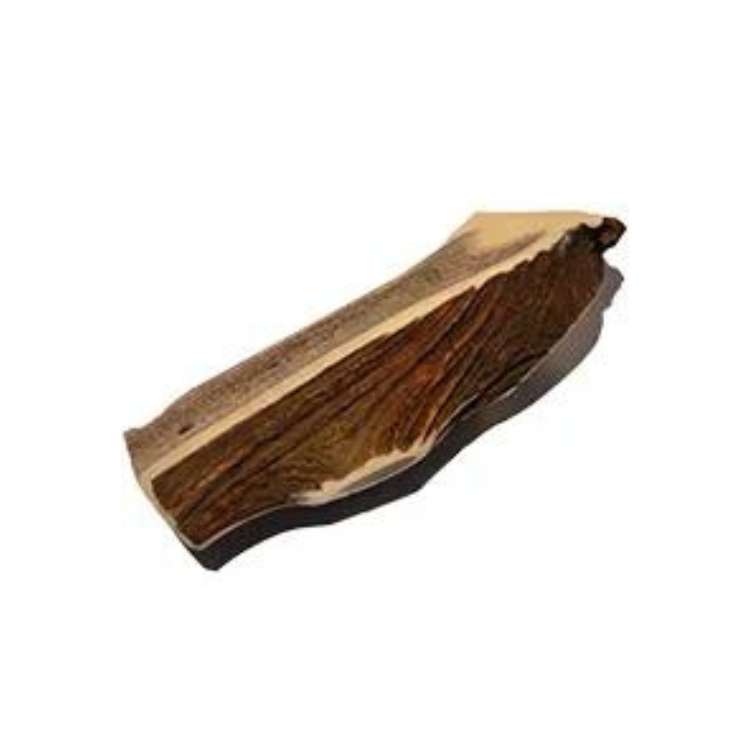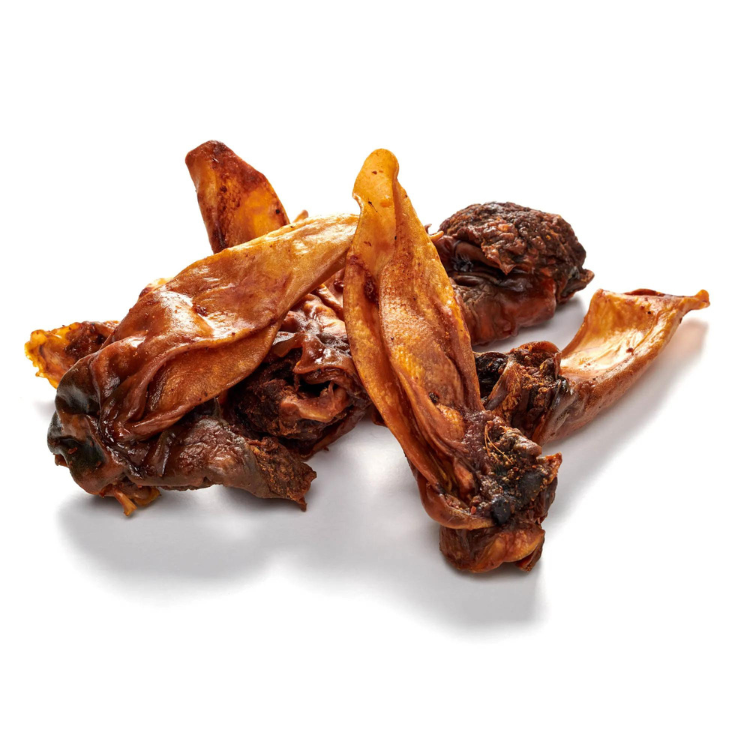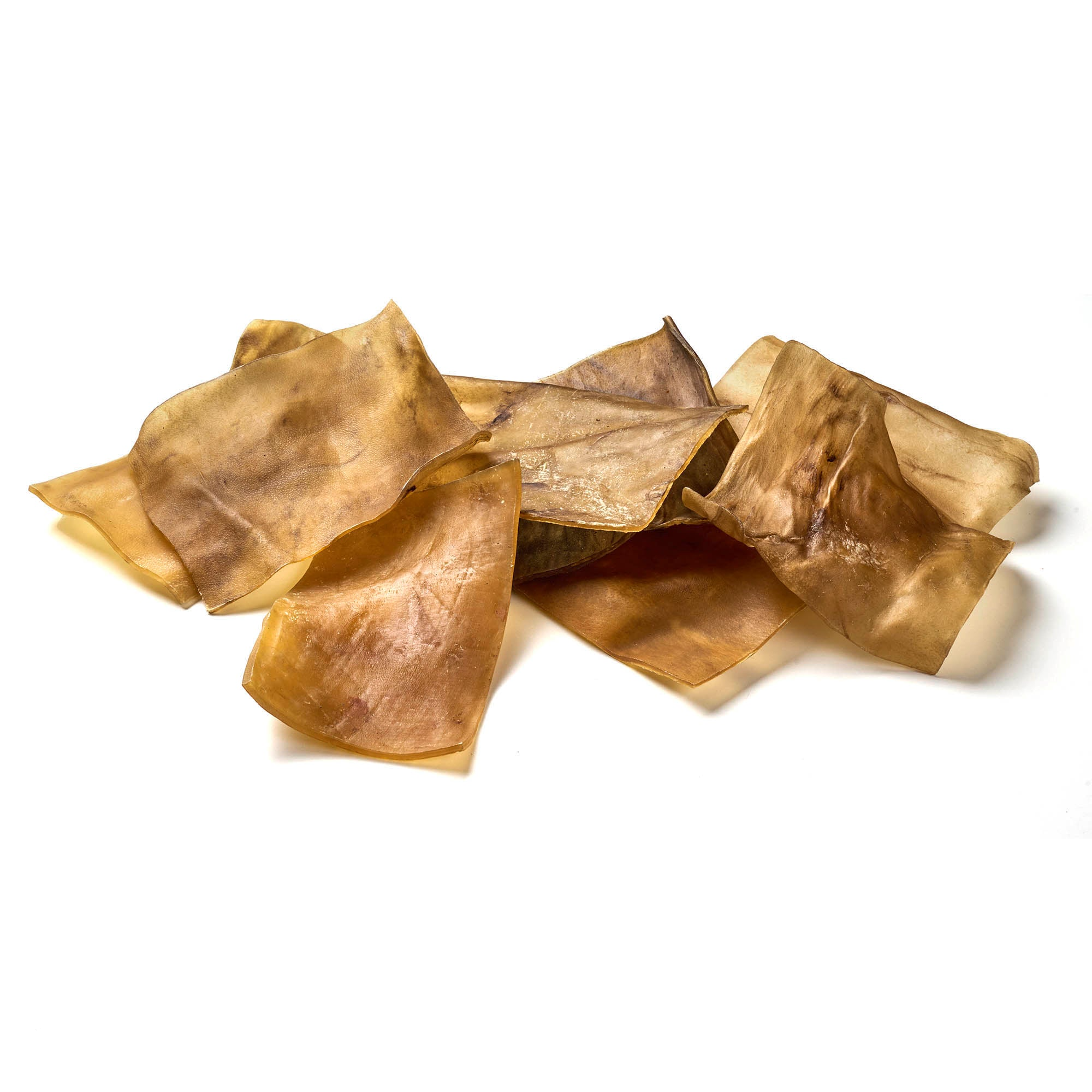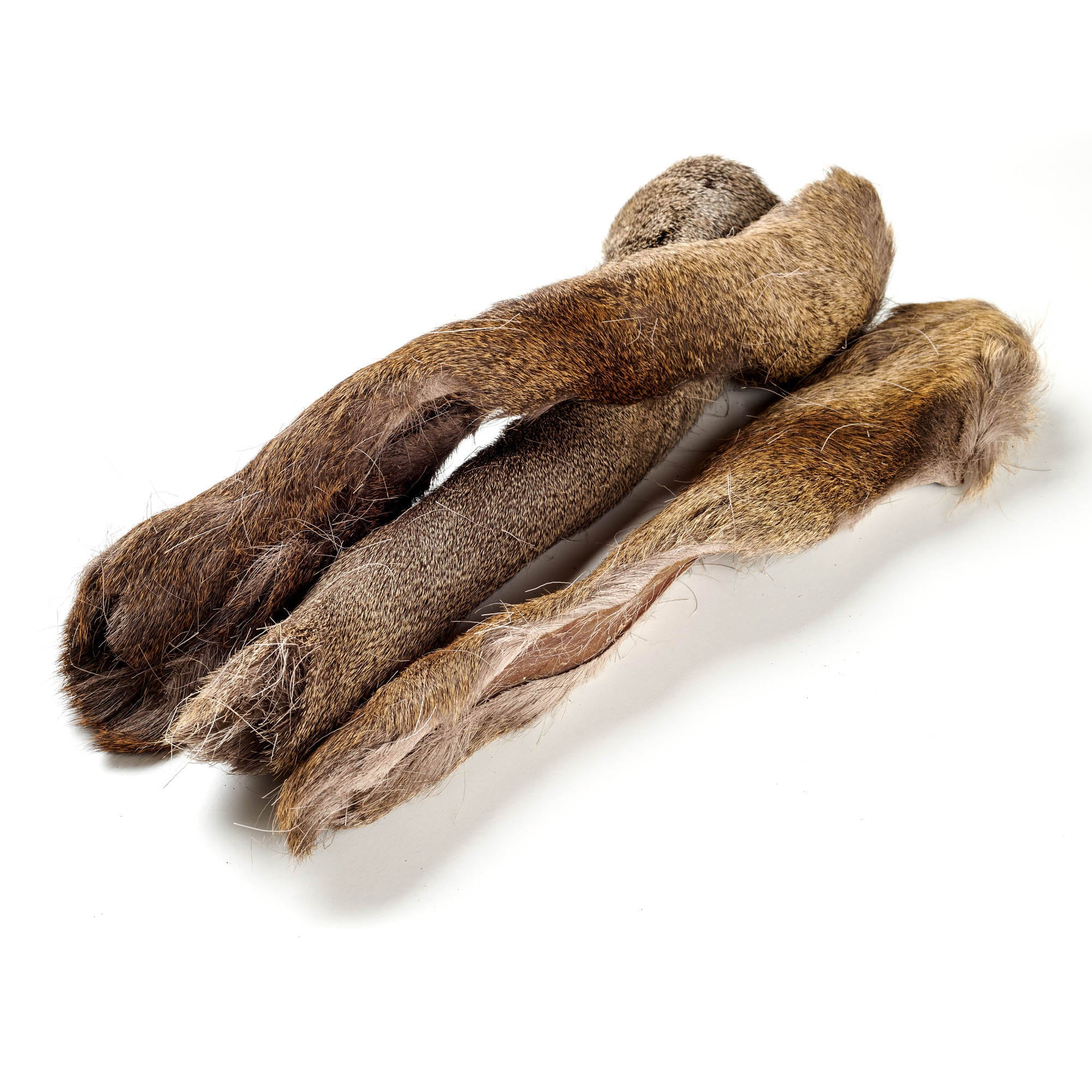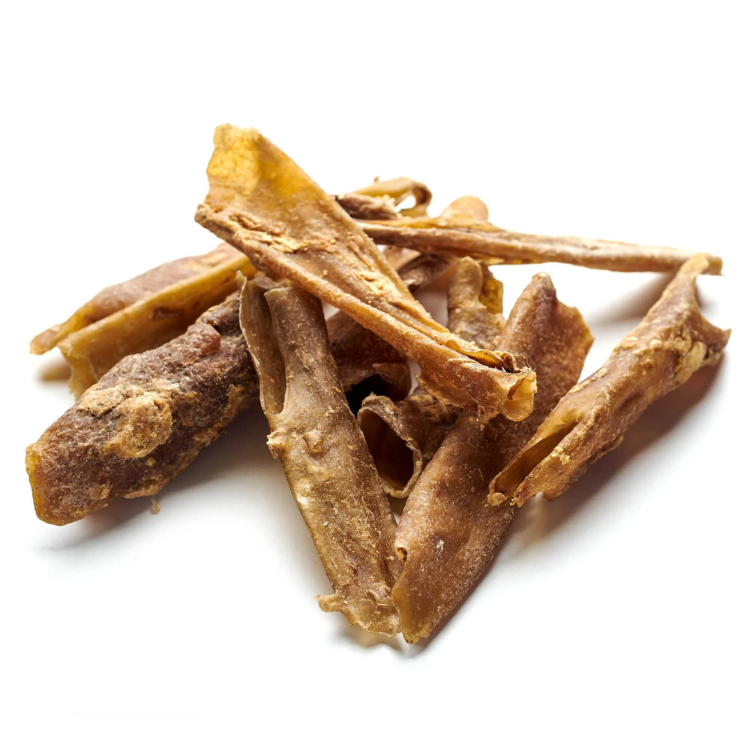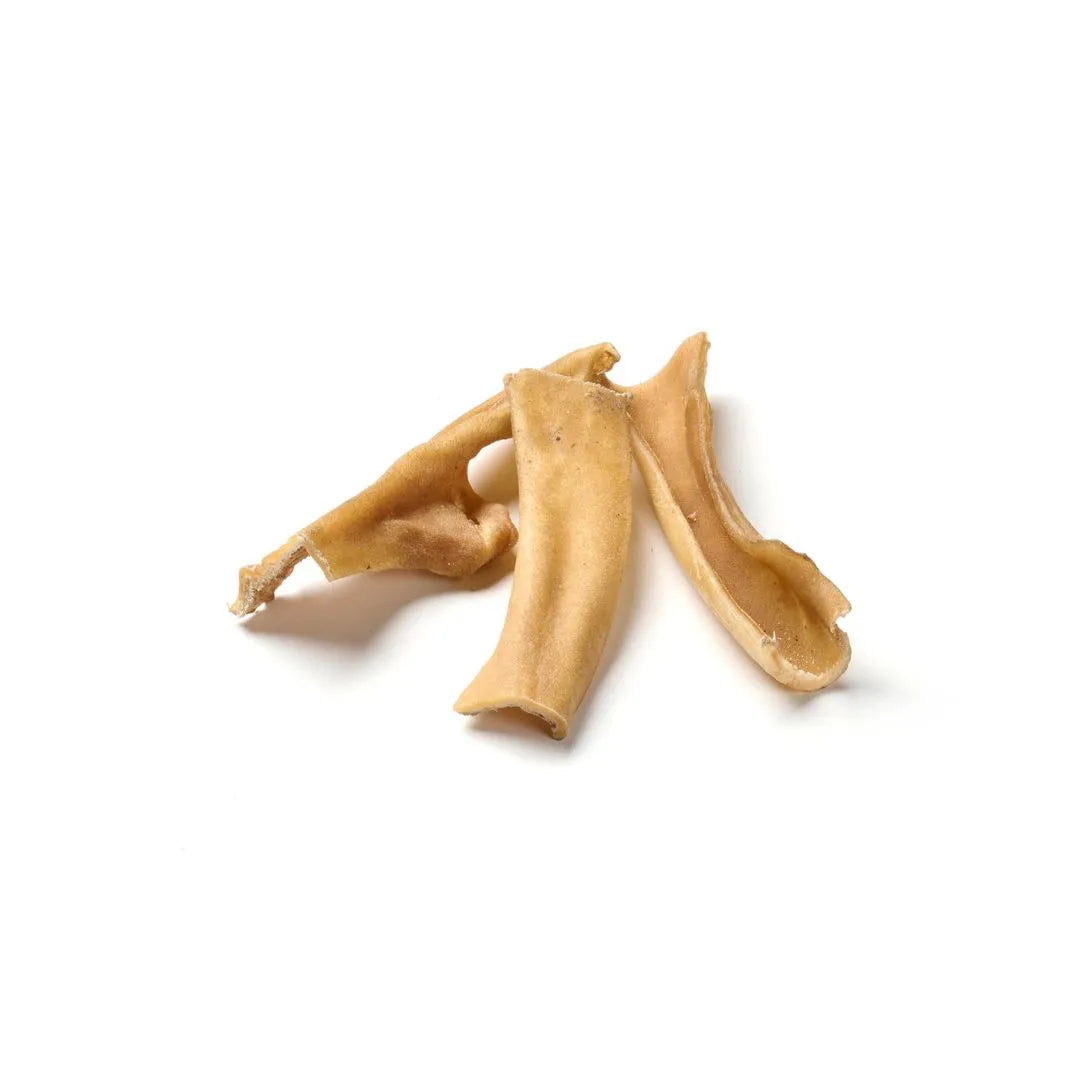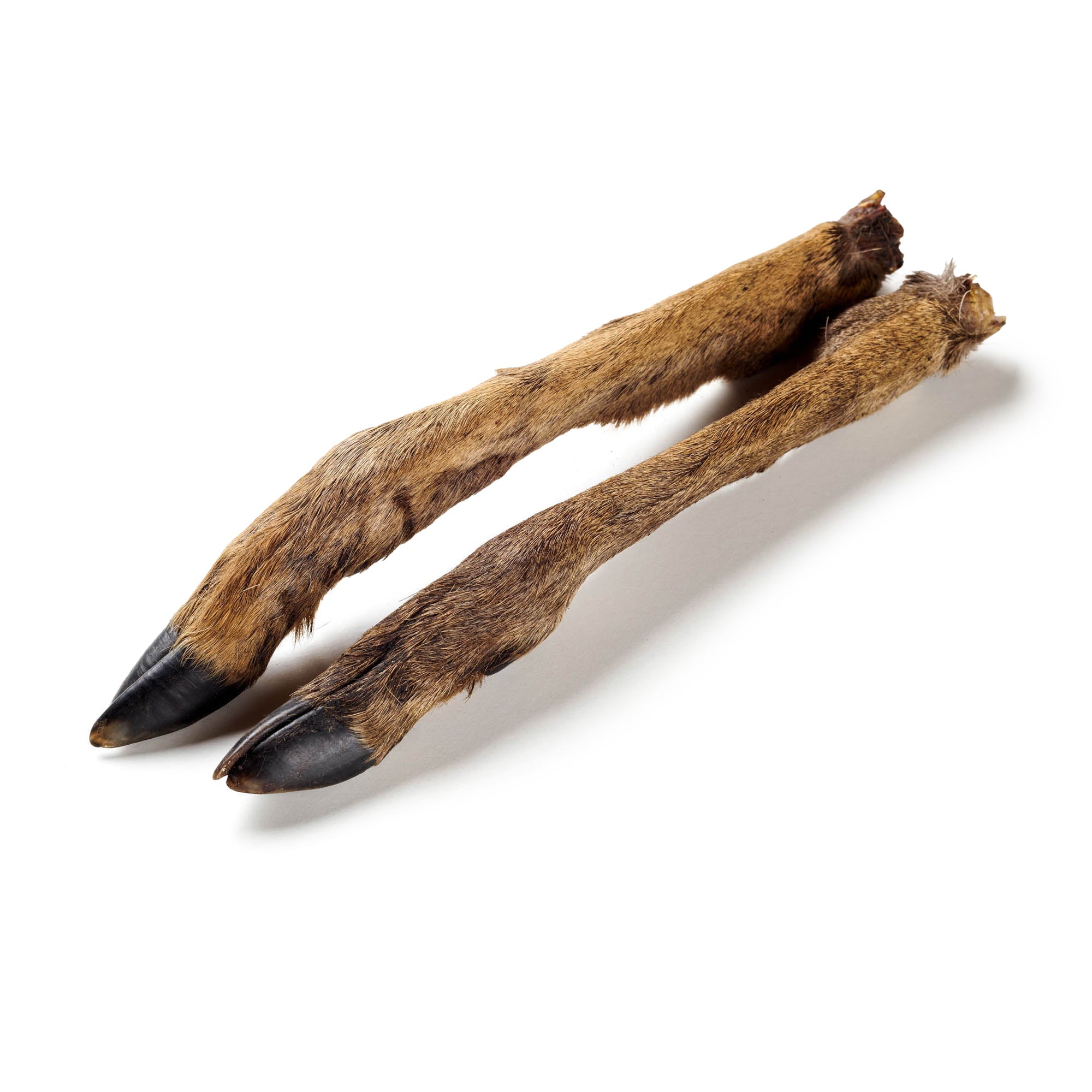
Chew bones for dogs
Share
A major reason many dog owners give their dogs chews is to keep them occupied. Chewing bones and similar accessories can help protect inventory in the home from damage, as they often serve as an alternative to slippers, chair legs and other objects that dogs would otherwise like to chew on. Chewing behavior is particularly pronounced in puppies, as they have an increased need to chew during teething or due to itching and pain - similar to babies. In adult dogs, chewing behavior varies depending on the individual, and each owner knows the needs of his or her own animal best.
Contents: Chewing bones for dogs
- Less tartar through chewing products?
- How dangerous are chews?
- Good chews for dogs
- Swallowed a chewing bone - what now?
- Be careful with marrow bones
- Conclusion
Delicious dog snacks for pure enjoyment are available from us!
Less tartar through chewing products?
The hope of many dog owners that chews will help keep their dogs' teeth clean is unfortunately not clearly confirmed by science. There are studies that show that bones can help clean teeth, while others come to different conclusions. This also applies to chew sticks and special dental care kibbles. Some studies have shown that certain products can actually lead to a reduction in tartar, but these studies are often only carried out over short periods of time and often refer to test animals.
How dangerous are chews?
Chews are not suitable for every dog and the decision often depends on individual factors. An owner should consider whether their dog swallows large chunks instead of chewing, whether they have stomach problems or are allergic to certain foods. Kidney or liver problems may also play a role.
There are big differences when it comes to feeding bones. Most dogs that are regularly given raw bones tolerate them well, while for others it can cause problems. Cooked bones are more brittle and more prone to splintering, especially poultry bones.
Chews such as tripe , beef scalp, pig or rabbit ears, and ox tails offer a variety of interesting chewing options for dogs. While these chews are rich in natural nutrients and can strengthen chewing muscles, they should be enjoyed in moderation. Some dogs may not tolerate these treats as well and may experience digestive problems such as bloat. For dogs with kidney or liver problems, it is advisable to avoid these chews to protect their health. Additionally, owners of dogs with food allergies should be cautious as these products may contain animal proteins, especially beef protein, which is a common allergen in dogs.
High-quality dog chews for your faithful companion can be found here!
Good chews for dogs
If your dog is healthy, you as an owner can go with the animal's preferences, whether it's bones , chew sticks, apples or carrots. For allergy sufferers or dogs with other health problems, chewing roots can be a safe alternative. They are also a good choice for dogs who are struggling with their weight , as they are low in calories. Chewing roots made from coffee or olive wood are particularly recommended, as they do not splinter. To make them more attractive to the dog, they can be treated with special treats.
Swallowed a chewing bone - what now?
"Chews that are swallowed whole are often not a problem," explains Dr. Busch. "Stomach acid can usually dissolve these food components. However, chews that get stuck in the esophagus are dangerous." A dog's reaction to this varies from individual to individual. Possible symptoms include swallowing, gagging, feeling unwell and vomiting. An accurate diagnosis can only be made by a vet using an X-ray, who you should consult if in doubt. It is important not to wait too long, as in the worst case scenario the esophagus could rupture. Pay more attention to your dog, how he is breathing, whether he is happy to do what he is doing and so on. Training to get used to it is the key here. Take it easy.
Be careful with marrow bones
It is important to exercise caution when using marrow bones as well. Occasionally, dogs will push the ring of bone over their lower jaw when chewing the soft inner core of the marrow. Once it is stuck, it usually needs to be removed by a vet. So if you want to give your pet a marrow bone, you should always keep an eye on them and be ready to intervene in time.
Conclusion
Chewing items such as bones, chew sticks and other tooth-friendly alternatives can provide dogs with an enriching activity and at the same time help to protect the inventory in the home from damage. They can be a useful addition, especially for puppies who have an increased need to chew during teething or due to itching, as well as for adult dogs with individual needs.
While many dog owners hope that chewing bones could keep their dogs' teeth clean, there is no clear scientific evidence to support this. However, when chosen correctly and considering individual needs, they can be safe and beneficial.
It is important to check the suitability of chews for your dog and to be aware of any potential risks such as choking, stomach problems or allergies. By making conscious choices and monitoring, owners can ensure that the chews promote their pet's health and wellbeing.
Despite potential risks, chews offer a variety of options that can meet the needs of different dogs. With a responsible approach and the right selection, they can be a useful addition to a dog's entertainment and health.
Pamper your dog with our delicious chews!

